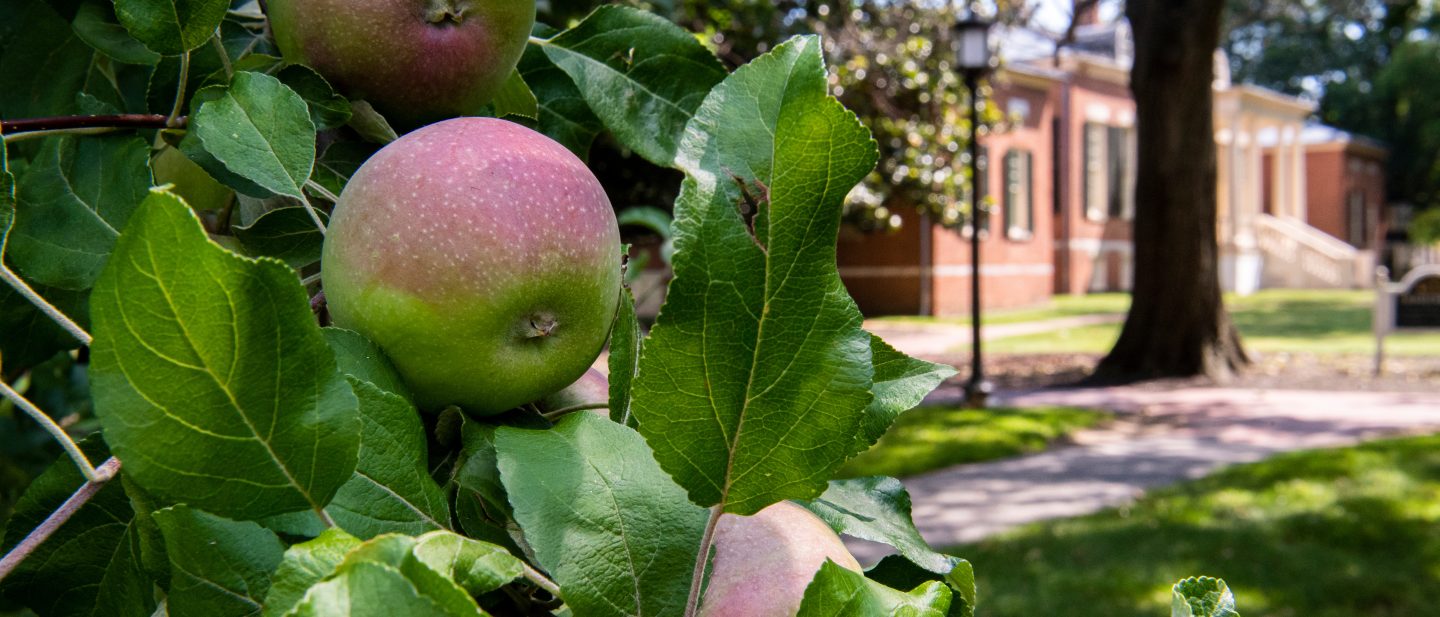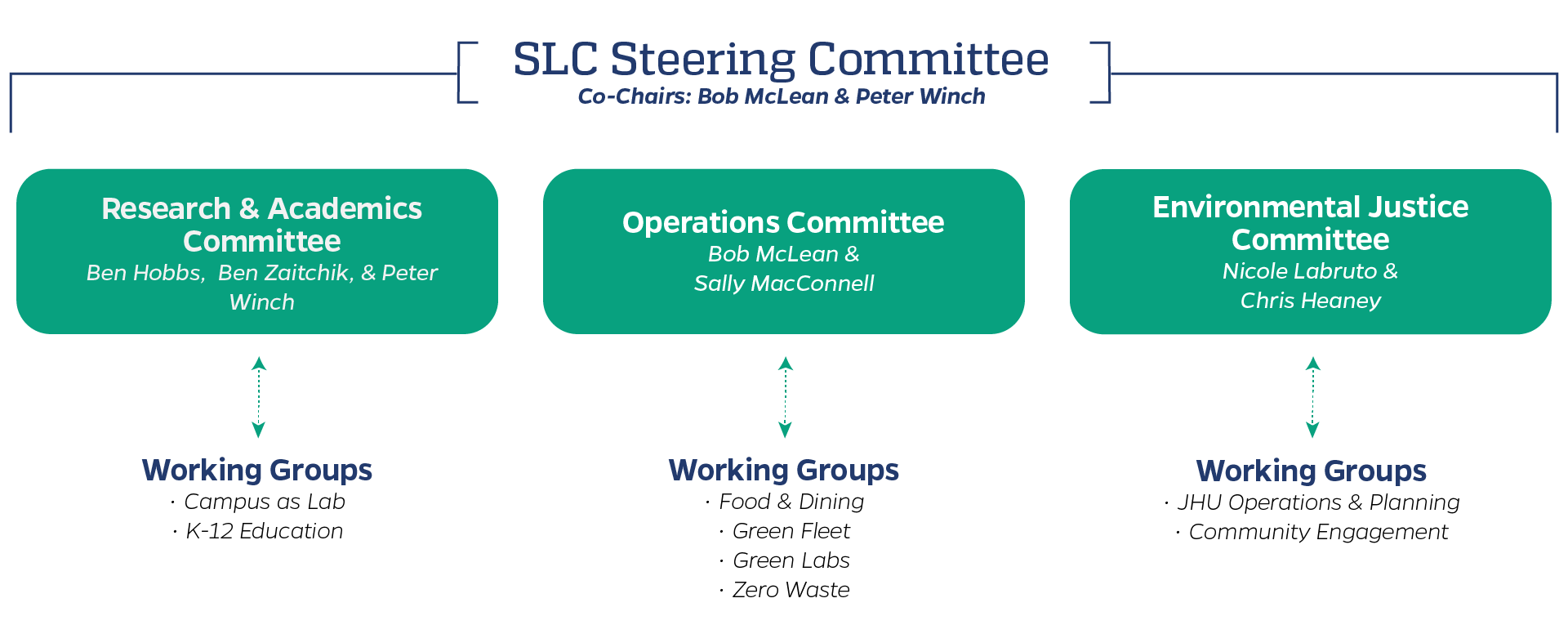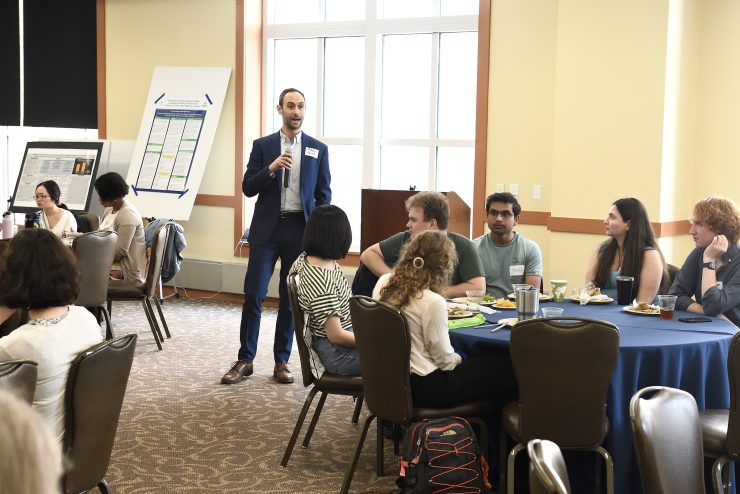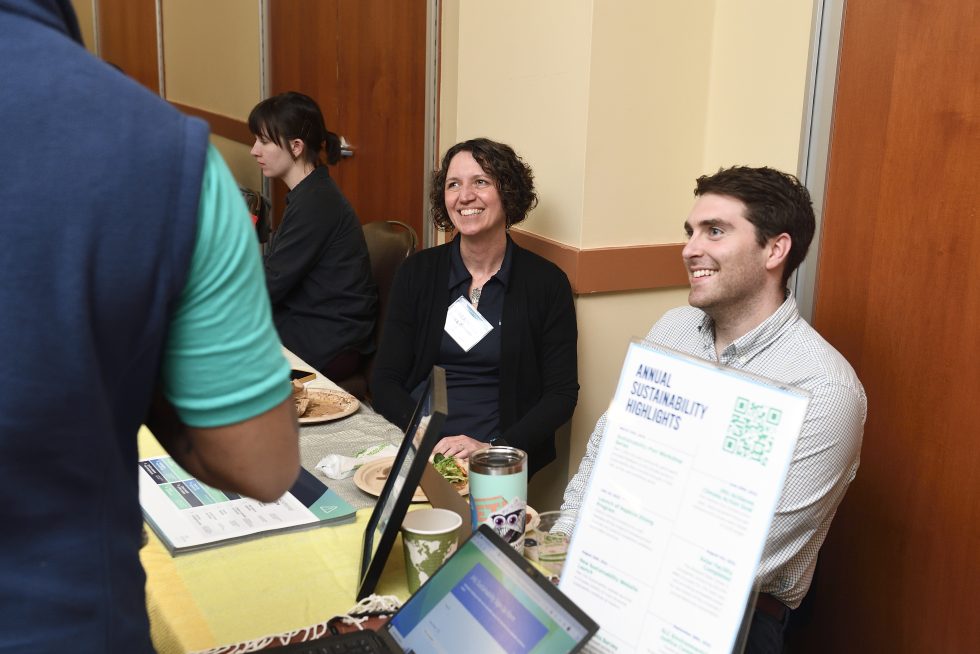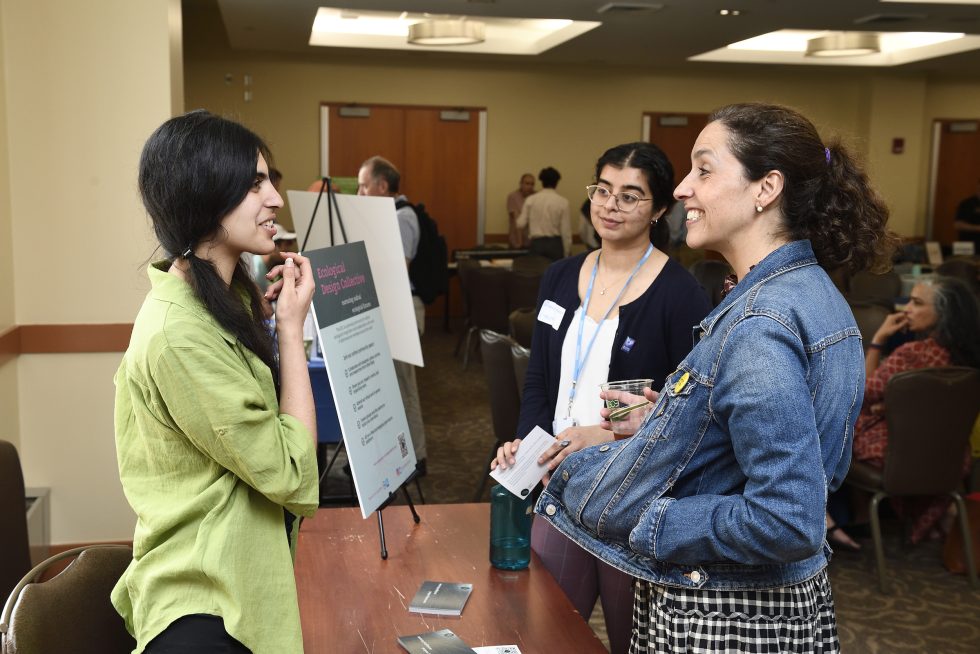Advancing Sustainability Through Multidisciplinary Collaboration
The SLC serves as a vital convening body to bring together stakeholders from across the university to:
- develop innovative solutions that advance existing priorities
- strategize new sustainability practices and challenges
- enhance communication and collaboration across schools and divisions
Comprised of over 180 students, faculty, and staf from across the university, the Sustainability Leadership Council (SLC) launched on Earth Day 2019 and has continually been advancing the university’s initiatives around sustainability, fostering multidisciplinary collaboration and supporting the work of the Office of Sustainability.
SLC Steering Committee: The SLC is led by a steering committee of faculty, student, and staff members, including chairs and representatives of the contributing SLC Committees.
The Co-Chairs of the SLC are:
- Bob McLean; Operations Committee Co-Chair, and Vice President, Facilities and Real Estate
- Peter Winch; Research & Academics Committee Co-Chair, and Professor, BSPH Department of International Health
The Research & Academics Committee convenes representatives from key department and academic program offering degrees and courses related to environmental sustainability as well as major sustainability research centers, institutes, and initiatives. The committee seeks to build bridges and identify synergies between current and evolving academic offerings, facilitate collaboration between programs, and strengthen JHU’s role in preparing graduates for leadership and careers in environmental sustainability.
Working Groups:
- Campus as Living Laboratory: convenes stakeholders to establish a new program focusing on empowering students and faculty to use JHU’s physical campuses as testbeds for innovation that advance on-campus sustainability solutions.
- New Initiatives: inventories existing research & academic initiatives and identify opportunities for new initiatives at JHU, such as new institutes or academic programs.
- K-12 Education: spearheads coordination across new and existing JHU efforts to advance K-12 sustainability education curriculum locally, nationally and globally.
- Sustainability Healthcare
The Environmental Justice Committee is committed to (1) mitigating the unfair exposure of poor, marginalized, and BIPOC communities to harms associated with pollution, waste, and industrial land & water use, and (2) supporting communities’ autonomy and visions of change. We work to promote environmental justice through various initiatives on the JHU campuses, in the greater Baltimore community, and beyond.
Working Groups:
- Community Engagement: liaisons with communities neighboring Johns Hopkins campus to identify and support their priorities and issues.
- Campus Operations & Planning: promotes environmental justice and inclusivity principles in campus governance, decision making, and operations.
The Operations Committee seeks to address opportunities for improving the daily operational and business practices of Johns Hopkins across all areas of its environmental footprint, including energy, waste, food, water, transportation, wellness, procurement, and more.
Working Groups:
- Green Labs: supports the expansion of JHU’s Green Labs program focusing on engaging lab users to conserve and reduce energy, water, waste, and other resources through a mix of strategies.
- Green Fleet: addresses sustainable transportation initiatives at JHU, focusing on university vehicles and student and employee behaviors, addressing topics ranging from vehicle electrification, employee commuting, procurement incentives, student transportation choices, and much more.
- Food & Dining: addresses sustainability in JHU’s food and dining locations, including topics ranging from local and sustainable food procurement, food security, climate-friendly diets and reducing GHG emissions in food programs, food growing opportunities, nutrition and menu design, and more.
- Zero Waste Planning: identifies waste related opportunities and challenges, research zero waste best practices, and works collaboratively to implement programs to set JHU on a path to a zero waste future.
Learn More
Council Achievements
Discover numerous successes and initiatives of the Sustainability Leadership Council and the many ways this network of leaders have made an impact through annual progress reports and a series of short highlights
Annual Symposium
The JHU Sustainability Leadership Council (SLC) is hosting it's 5th Annual Symposium on Sustainability Research and Practice on Wednesday, April 3rd, 2024 all day in person at Scott-Bates Commons. We are excited to welcome anyone interested in learning more about sustainability at Hopkins to join us for a day of posters, presentations, and panels showcasing sustainability initiatives, programs, and research at JHU.
Past Sustainability Symposiums
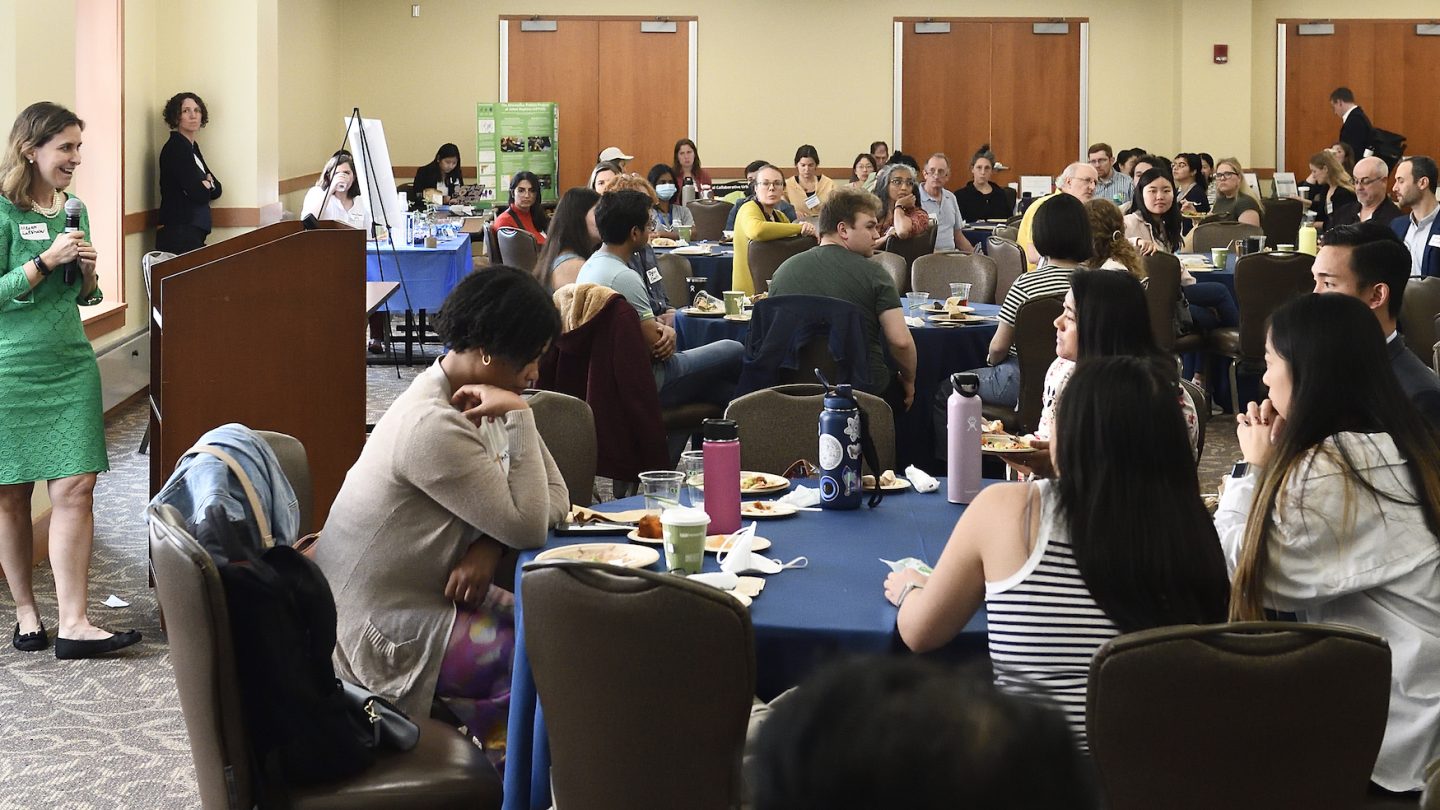
Learn more about the 5th Annual 2024 Sustainability Leadership Symposium to be held on April 3rd, and propose a talk or research poster by 12/15/23!
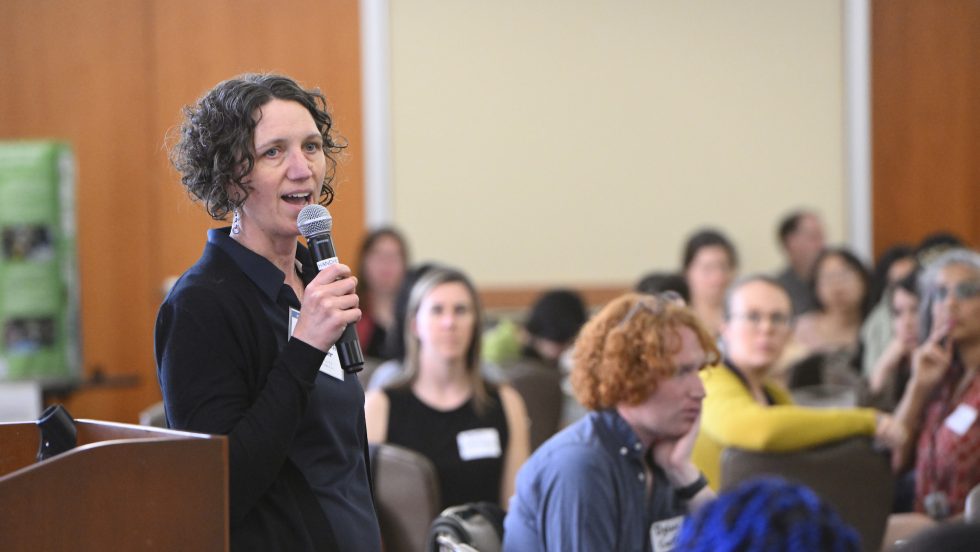
Learn more about the 4th Annual 2023 Sustainability Leadership Symposium which featured 60+ speakers & 300+ attendees!
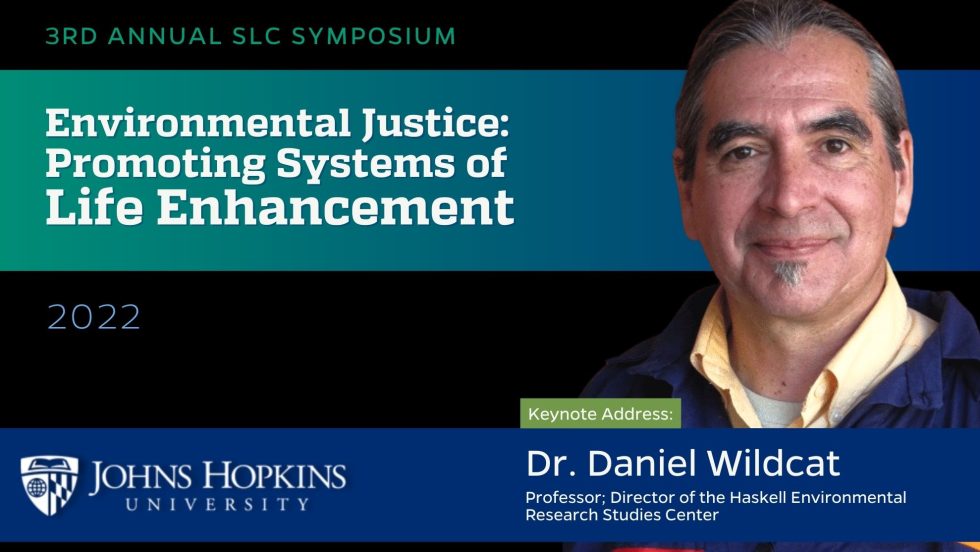
Dr. Daniel Wildcat, keynote speaker for the 3rd Annual SLC Symposium in 2022, spoke on the indigenous knowledge, environmental justice, and sustainability action.
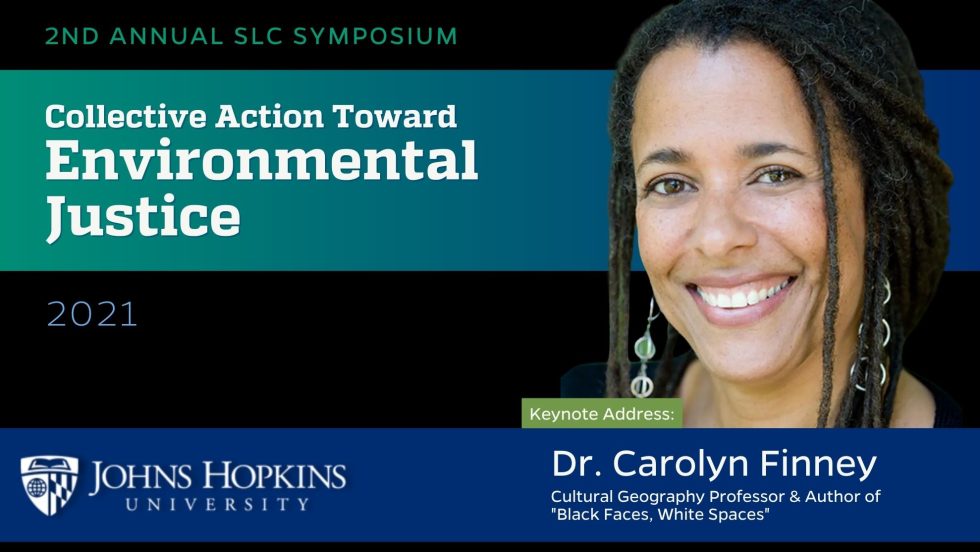
Dr. Carolyn Finney, keynote speaker for the 2nd Annual SLC Symposium in 2021, spoke on privilege, environmental justice, policy and action.
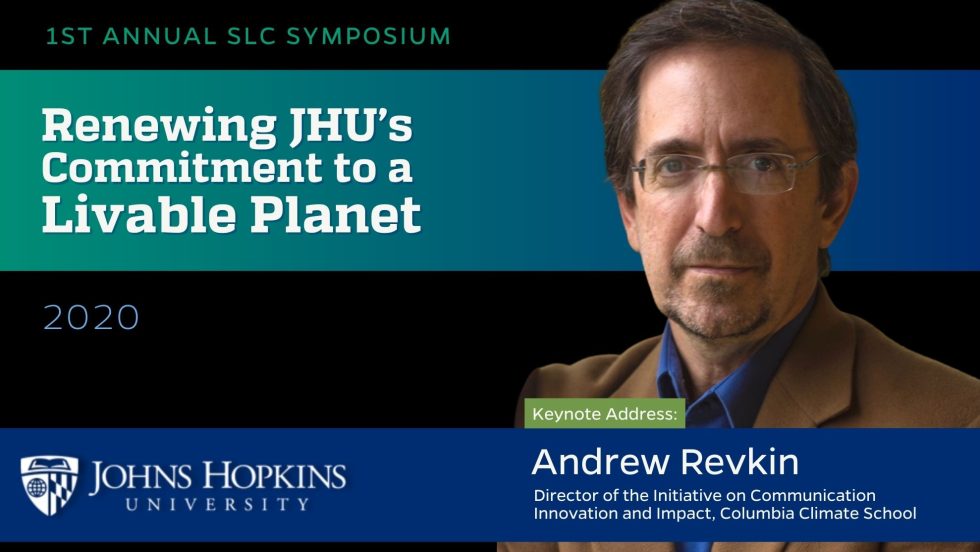
Dr. Andrew Revkin, keynote speaker for the 1st Annual SLC Symposium in 2020, spoke on making information matter on a noisy, polarized but deeply observed and connected planet.
